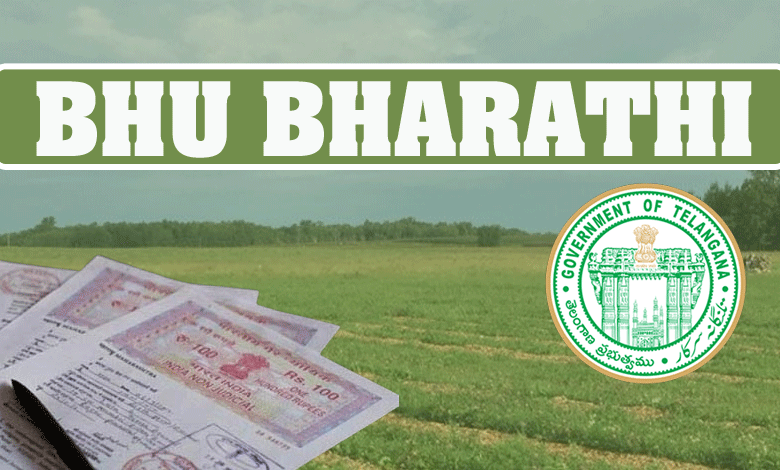“Bho Bharathi” Introduces Unique Land IDs for Transparent Ownership
This comprehensive overhaul of land records management is poised to set a benchmark for other states in India, ensuring better governance and fostering trust among stakeholders.

Hyderabad – The Telangana state government has introduced a groundbreaking revenue law named “Bho Bharathi,” which aims to revolutionize land records management with several significant reforms. The law will implement a more efficient and transparent system for land transactions and ownership records.
Table of Contents
Also Read: Strict Action Against Illegal Buildings in Hyderabad’s FTL Zones, Says HYDRA
Key Features of the “Bho Bharathi” Revenue Law:
- Land Aadhaar-like Identification: Every land plot in Telangana will be assigned a unique “BhoDhaar” number, akin to the Aadhaar ID system for individuals.
- Mandatory Land Surveys Before Transactions:
Land buying and selling will require a prior survey of the property to ensure accurate records and avoid disputes. - Instant Mutation Process:
Similar to the existing feature on the Dharani Portal, the new law ensures that the mutation (transfer of ownership) is completed immediately after the registration of the property. - New Guidelines for Inherited Land Transfers:
- Even after registering inherited properties at the Tahsildar office, the authority to approve mutations will rest with the RDO (Revenue Divisional Officer).
- The transfer process will be withheld for 30 days to allow for any objections or disputes related to the land to surface.
- Streamlining Mutation for Specific Land Types
- Rights for land categories such as court-ordered transfers, ORC, and 38-E lands (protected tenancy) will now be managed by RDOs.
- The number of modules in the Dharani Portal will be reduced from 33 to 6 for a simplified process.
- Enhanced Land Records:
- Land records will now include 11 additional fields, providing more comprehensive details, including the names of beneficiaries.
- Updated details for resolved Part-B cases will be reflected in land records, and passbooks will be issued.
- Village lands and government records alignment:
- The government will standardize records for village lands and abadi (inhabited) areas.
- Records of government lands listed prior to 2014 will be cross-referenced with Dharani data. Lands incorrectly categorized as government property before 2014 but resolved later as private land will now be included in the restricted list again.
Stakeholder Reactions
- Deputy Collectors’ Association:
Welcoming the law, association leaders stated that the Bho Bharati law would benefit farmers and enhance land dispute resolution. It will also ensure better protection for both private and government lands. - Telangana Revenue Employees Services Association (TRESA):
TRESA officials expressed support, highlighting that the new law will reduce the burden on courts by resolving disputes at the lower levels. They also emphasized the law’s potential to bring greater transparency and reliability to land records.
Broader Implications
The Bho Bharati Revenue Law represents a significant move towards modernization and transparency in land administration in Telangana. By integrating advanced features such as unique IDs, instant mutations, and comprehensive land records, the government aims to streamline land management while addressing long-standing disputes and inefficiencies. The law is expected to greatly reduce litigation and make land ownership records more accessible and accurate.
This comprehensive overhaul of land records management is poised to set a benchmark for other states in India, ensuring better governance and fostering trust among stakeholders.
